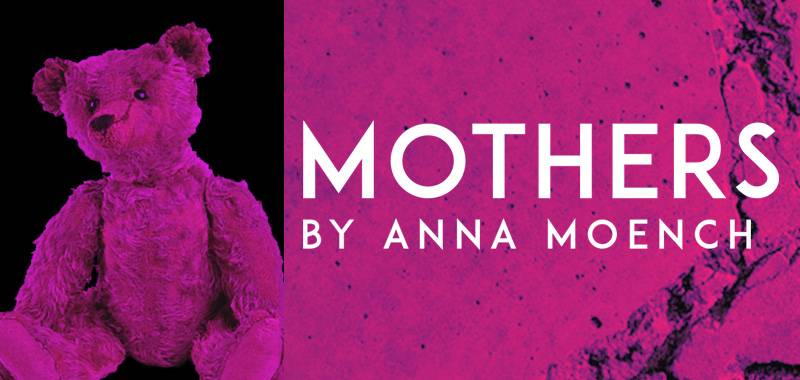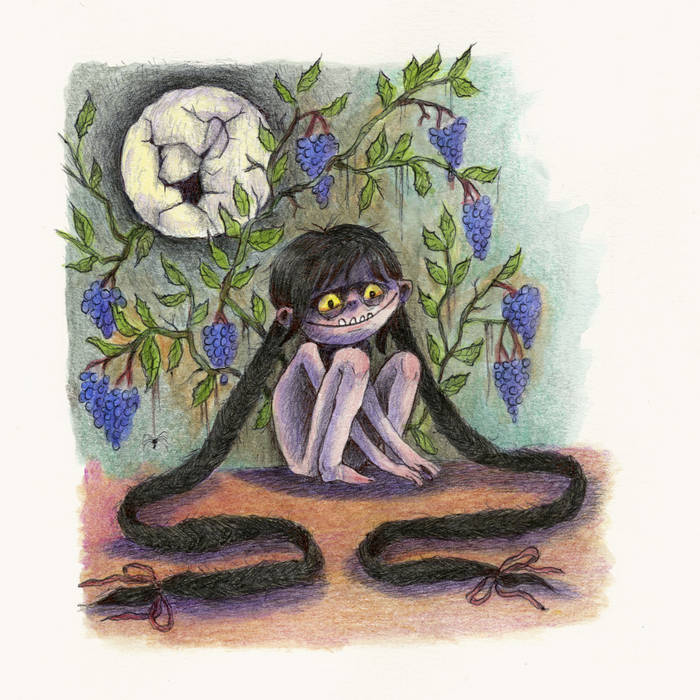MFA playwright Anna Moench returns to the Wagner New Play Festival with a new, terrifying piece on the horrors of motherhood.
As theatregoers trickle into Potiker Theatre, they pause to gape at the eerily minimalist stage. Along with toy blocks and a suspended, crooked crib, bright pink overwhelms the space, seeping through the cracks and bouncing off the reflective surface into the audience’s hungry eyes. The lights dim, and our first five characters take their place.
Act one boasts the agonizing intensity of mother-to-mother banter at a daycare. Ariana (Janet Fiki) strides across the stage in her pristine, pink blouse, skirt, and heels, purposefully mocking Vick’s (Amara Granderson) childish overalls and Meg’s (Nicole Javier) plain white dress shirt and black slacks. Clutching her large pink purse, Ariana discreetly criticizes the other mothers’ parenting practices, from Vick’s sacrifice of her career to Meg’s prioritization of her own. As each mother takes turns leaving the stage to leave the other two to gossip, we gradually become more and more invested in the secrets and personal judgements hiding behind each woman’s facade, snickering along while each woman jabs at the other. The crowd, however, remains particularly biased toward Meg, who appears as the central character in navigating her own role as both a mother and a lawyer, diving into discussions with the other two mothers concerning issues ranging from breastfeeding and social media to race.
Yes, even race. All of the characters, save Ty (David Price), the only father present at the daycare, are purposefully women of color. In the entire course of their painstakingly cringe-worthy arguments, the single moment that unites them involves the easy exchange of the term “beige” in reference to white people. Playwright Anna Moench, however, writes the word so that it is exclusively used by the mothers, demonstrated specifically through Meg’s uncomfortable explanation to Ty of her perception of his privileged “beige-ness.” Ty awkwardly attempts to move away from the conversation, which abruptly ends once all three mothers reposition themselves back onto the blazing pink stage.
Yet, the women do not continue to speak. Ty overtakes the space as his own, suddenly addressing both the audience and himself in order to proclaim the apparent colossal size of his penis. The crowd erupts in laughter as he moves through the stationary women to jump atop the furniture to thrust his waist and validate his white masculinity.
But something horrendous crashes into the realm of “Mothers”.
In Act two, the lighting dims, and the plot darkens as an unknown external factor isolates the characters from the rest of the world. Ty and the nanny Gladys (Mo Rodvanich) emerge with principal roles in maintaining the survival of the group, eventually profiting off the explicit brutalization of the female bodies available in a horrifying show of exploitative violence.
Quite a few spectators rose to a standing ovation at the end of Moench’s play, while the rest still sat absorbing the whirlwind of scenes that had occurred before them. Such a response coheres to Moench’s brilliance.
Though the majority of the play involves a discussion of extremely intricate, heavy topics, “Mothers” succeeds in carefully articulating the backdrops of each perspective, whether through Moench’s comprehensive characterization of each individual or director Bea Basso’s intriguing employment of lighting and shadows. “Mothers” offers an extensive investigation of the realities of motherhood, and, in opening the week after Mother’s Day, effectively exposes the growing pains of mothers of color in an increasingly oppressive climate.
Grade: A
Playwright: Anna Moench
Director: Bea Basso
Starring: Janet Fiki, Amara Granderson, Nicole Javier, David Price, Mo Rodvanich, Erin Li
Runs: May 9 – 19
Location: Sheila and Hughes Potiker Theatre
Image Courtesy of UCSD Theatre and Dance








